





























See Also
See Again
© Shutterstock
0 / 30 Fotos
Universal search authority
- US border agents at ports of entry have the jurisdiction to inspect all travelers and their belongings, regardless of citizenship, without a warrant or suspicion. This authority comes from federal law and is designed to protect national borders and enforce customs.
© Shutterstock
1 / 30 Fotos
Luggage and personal item searches
- CBP agents can search all items you carry across the border without suspicion or a warrant. This includes personal belongings like bags, books, and wrapped gifts, and refusal to comply may result in delays or detainment.
© Getty Images
2 / 30 Fotos
Routine pat-down searches
- Border agents can perform pat-downs without suspicion during inspections. These searches must be respectful and usually conducted by a same-gender officer. Travelers can request privacy for more sensitive checks if needed.
© Shutterstock
3 / 30 Fotos
No discrimination policy
- Border agents cannot base their searches, questions, or detentions on race, religion, gender, or political views. While broad authority exists, targeting someone solely for protected characteristics is prohibited and violates anti-discrimination laws.
© Shutterstock
4 / 30 Fotos
Primary inspection basics
- All travelers undergo primary inspection, where CBP officers verify identity, documents, and reasons for entry. Most people are quickly cleared, but any red flags or random checks may lead to secondary inspection for deeper scrutiny.
© Shutterstock
5 / 30 Fotos
Secondary screening discretion
- Travelers may be referred to secondary inspection for random reasons or due to suspicion. Agents need no probable cause to do so. This step can include more in-depth questioning and searches, which travelers cannot legally refuse.
© Shutterstock
6 / 30 Fotos
Identity and citizenship queries
- US citizens must prove identity and citizenship, but can refuse questions beyond that without being denied entry. Non-citizens, however, must answer all admissibility-related questions or risk being denied entry altogether.
© Shutterstock
7 / 30 Fotos
Questions on beliefs or politics
- Questions about religion or political beliefs may be asked, but citizens can refuse to answer and still enter. For non-citizens, refusal might affect entry, although CBP cannot deny entry based solely on beliefs.
© Shutterstock
8 / 30 Fotos
Asylum at the port of entry
- Any non-citizen fearing persecution or torture in their homeland has the right to request asylum when denied entry. CBP must refer such cases to an asylum officer rather than summarily removing the person from US territory.
© Shutterstock
9 / 30 Fotos
Vehicle inspections at land borders
- Agents can thoroughly inspect vehicles at land crossings without warrants or suspicion. This includes searching trunks, compartments, and using detection tools. You can’t refuse, and CBP can hold the vehicle if you don’t comply.
© Shutterstock
10 / 30 Fotos
Strip searches with suspicion
- Strip or invasive searches require reasonable suspicion and must be approved and conducted privately. These are rare and reserved for cases involving suspected contraband, like drug smuggling or concealed weapons.
© Shutterstock
11 / 30 Fotos
Digital device inspection
- CBP can search phones and laptops without a warrant or suspicion. They can ask you to unlock devices and review contents manually, treating them like containers for possible contraband or evidence of inadmissibility.
© Shutterstock
12 / 30 Fotos
Advanced device searches
- To perform more advanced forensic searches on digital devices, CBP must have reasonable suspicion and approval from a supervisor. These deeper searches extract or analyze data and are only conducted in cases with potential legal or security concerns.
© Shutterstock
13 / 30 Fotos
Only local device data
- The policies of CBP limits searches to data stored directly on your device. Officers must disable internet access to avoid accessing cloud-based data. This ensures that they only inspect files and content already downloaded or saved locally.
© Shutterstock
14 / 30 Fotos
Data copying and retention
- CBP can copy data from your device for later examination. If nothing illegal is found, the data is destroyed per policy. Sensitive or privileged content is protected, and travelers should request documentation if their device is ever seized.
© Shutterstock
15 / 30 Fotos
US citizens refusing device search
- Citizens can refuse to unlock devices without being denied entry. However, refusal may lead to delays or seizure of the device for further analysis. Agents cannot legally force disclosure of passwords at the border.
© Shutterstock
16 / 30 Fotos
Non-citizens refusing device search
- Non-citizens who decline to unlock devices can be denied entry. Since entry is not a right for them, refusal may lead to visa cancellation or being sent back, especially if the device is deemed essential to inspection.
© Shutterstock
17 / 30 Fotos
No right to attorney during inspection
- Travelers don’t have a right to an attorney during routine border inspections. Legal counsel only becomes available if formal detention or criminal charges occur. Most immigration and customs questioning happens without a lawyer.
© Shutterstock
18 / 30 Fotos
No coerced signing away of rights
- CBP cannot force you to sign forms relinquishing rights or immigration status. Travelers should read all documents carefully and can refuse to sign anything they don’t understand or that implies giving up legal status.
© Shutterstock
19 / 30 Fotos
Right of entry for citizens
- US citizens cannot be denied entry to their country under any circumstances. Even without a passport, officials must confirm identity and allow entry. Border agents cannot deport, expel, or refuse re-entry to citizens.
© Shutterstock
20 / 30 Fotos
Expedited removal
- Customs and Border Protection can rapidly deport inadmissible non-citizens via expedited removal, especially for fraud or missing documents. These removals carry entry bans. However, asylum seekers must be referred for proper interviews before removal.
© Getty Images
21 / 30 Fotos
Border zone authority and limits
- CBP’s authority extends 100 miles (161 kilometers) from the border, but at ports of entry it’s strongest. Away from the border, they need consent or probable cause to search. Home entry still requires a warrant or permission.
© Shutterstock
22 / 30 Fotos
Duty to facilitate legitimate travel
- CBP must balance enforcement with enabling lawful travel. If a traveler is clearly admissible, they should be processed efficiently. Legitimate travelers shouldn’t be delayed unnecessarily once their identity and documents check out.
© Shutterstock
23 / 30 Fotos
Agents must be professional
- CBP officers are required to treat travelers with dignity. Abuse, harassment, or discriminatory conduct violates policy. If mistreated, travelers may ask for a supervisor and later file complaints through official or civil rights channels.
© Shutterstock
24 / 30 Fotos
Criminal arrests and warrant hits
- CBP screens all travelers against law enforcement databases. If someone is wanted or commits a crime at the border, agents can detain and transfer them to other authorities. Citizens still have criminal due process protections.
© Shutterstock
25 / 30 Fotos
Pre-screening and databases
- CBP often reviews traveler information before arrival using flight data and government databases. Officers may already know travel history, visa status, or potential presence on watch lists, and they can use that information during inspection to guide questioning.
© Shutterstock
26 / 30 Fotos
Duty to comply
- Travelers must follow CBP instructions and answer questions truthfully. Lying or failing to declare items like cash or contraband can lead to agents detaining travelers, issuing fines, or denying entry. Falsely claiming US citizenship is especially serious.
© Shutterstock
27 / 30 Fotos
Multiple law enforcement roles
- CBP enforces a wide range of laws beyond immigration, including customs, drug enforcement, intellectual property, and public safety. Officers may collaborate with other agencies to investigate or prosecute violations detected during border inspections.
© Shutterstock
28 / 30 Fotos
Filing complaints
- Travelers can report CBP misconduct or file redress claims if they believe their rights were violated. The Department of Homeland Security’s Traveler Redress Inquiry Program (DHS TRIP) helps with repeated screening issues, and legal complaints can raise attention to abuses or problematic patterns at the border. Sources: (American Civil Liberties Union of Northern California) (American Civil Liberties Union of Arizona) (US Customs and Border Protection) (WIRED) (Homeland Security)
© Getty Images
29 / 30 Fotos
© Shutterstock
0 / 30 Fotos
Universal search authority
- US border agents at ports of entry have the jurisdiction to inspect all travelers and their belongings, regardless of citizenship, without a warrant or suspicion. This authority comes from federal law and is designed to protect national borders and enforce customs.
© Shutterstock
1 / 30 Fotos
Luggage and personal item searches
- CBP agents can search all items you carry across the border without suspicion or a warrant. This includes personal belongings like bags, books, and wrapped gifts, and refusal to comply may result in delays or detainment.
© Getty Images
2 / 30 Fotos
Routine pat-down searches
- Border agents can perform pat-downs without suspicion during inspections. These searches must be respectful and usually conducted by a same-gender officer. Travelers can request privacy for more sensitive checks if needed.
© Shutterstock
3 / 30 Fotos
No discrimination policy
- Border agents cannot base their searches, questions, or detentions on race, religion, gender, or political views. While broad authority exists, targeting someone solely for protected characteristics is prohibited and violates anti-discrimination laws.
© Shutterstock
4 / 30 Fotos
Primary inspection basics
- All travelers undergo primary inspection, where CBP officers verify identity, documents, and reasons for entry. Most people are quickly cleared, but any red flags or random checks may lead to secondary inspection for deeper scrutiny.
© Shutterstock
5 / 30 Fotos
Secondary screening discretion
- Travelers may be referred to secondary inspection for random reasons or due to suspicion. Agents need no probable cause to do so. This step can include more in-depth questioning and searches, which travelers cannot legally refuse.
© Shutterstock
6 / 30 Fotos
Identity and citizenship queries
- US citizens must prove identity and citizenship, but can refuse questions beyond that without being denied entry. Non-citizens, however, must answer all admissibility-related questions or risk being denied entry altogether.
© Shutterstock
7 / 30 Fotos
Questions on beliefs or politics
- Questions about religion or political beliefs may be asked, but citizens can refuse to answer and still enter. For non-citizens, refusal might affect entry, although CBP cannot deny entry based solely on beliefs.
© Shutterstock
8 / 30 Fotos
Asylum at the port of entry
- Any non-citizen fearing persecution or torture in their homeland has the right to request asylum when denied entry. CBP must refer such cases to an asylum officer rather than summarily removing the person from US territory.
© Shutterstock
9 / 30 Fotos
Vehicle inspections at land borders
- Agents can thoroughly inspect vehicles at land crossings without warrants or suspicion. This includes searching trunks, compartments, and using detection tools. You can’t refuse, and CBP can hold the vehicle if you don’t comply.
© Shutterstock
10 / 30 Fotos
Strip searches with suspicion
- Strip or invasive searches require reasonable suspicion and must be approved and conducted privately. These are rare and reserved for cases involving suspected contraband, like drug smuggling or concealed weapons.
© Shutterstock
11 / 30 Fotos
Digital device inspection
- CBP can search phones and laptops without a warrant or suspicion. They can ask you to unlock devices and review contents manually, treating them like containers for possible contraband or evidence of inadmissibility.
© Shutterstock
12 / 30 Fotos
Advanced device searches
- To perform more advanced forensic searches on digital devices, CBP must have reasonable suspicion and approval from a supervisor. These deeper searches extract or analyze data and are only conducted in cases with potential legal or security concerns.
© Shutterstock
13 / 30 Fotos
Only local device data
- The policies of CBP limits searches to data stored directly on your device. Officers must disable internet access to avoid accessing cloud-based data. This ensures that they only inspect files and content already downloaded or saved locally.
© Shutterstock
14 / 30 Fotos
Data copying and retention
- CBP can copy data from your device for later examination. If nothing illegal is found, the data is destroyed per policy. Sensitive or privileged content is protected, and travelers should request documentation if their device is ever seized.
© Shutterstock
15 / 30 Fotos
US citizens refusing device search
- Citizens can refuse to unlock devices without being denied entry. However, refusal may lead to delays or seizure of the device for further analysis. Agents cannot legally force disclosure of passwords at the border.
© Shutterstock
16 / 30 Fotos
Non-citizens refusing device search
- Non-citizens who decline to unlock devices can be denied entry. Since entry is not a right for them, refusal may lead to visa cancellation or being sent back, especially if the device is deemed essential to inspection.
© Shutterstock
17 / 30 Fotos
No right to attorney during inspection
- Travelers don’t have a right to an attorney during routine border inspections. Legal counsel only becomes available if formal detention or criminal charges occur. Most immigration and customs questioning happens without a lawyer.
© Shutterstock
18 / 30 Fotos
No coerced signing away of rights
- CBP cannot force you to sign forms relinquishing rights or immigration status. Travelers should read all documents carefully and can refuse to sign anything they don’t understand or that implies giving up legal status.
© Shutterstock
19 / 30 Fotos
Right of entry for citizens
- US citizens cannot be denied entry to their country under any circumstances. Even without a passport, officials must confirm identity and allow entry. Border agents cannot deport, expel, or refuse re-entry to citizens.
© Shutterstock
20 / 30 Fotos
Expedited removal
- Customs and Border Protection can rapidly deport inadmissible non-citizens via expedited removal, especially for fraud or missing documents. These removals carry entry bans. However, asylum seekers must be referred for proper interviews before removal.
© Getty Images
21 / 30 Fotos
Border zone authority and limits
- CBP’s authority extends 100 miles (161 kilometers) from the border, but at ports of entry it’s strongest. Away from the border, they need consent or probable cause to search. Home entry still requires a warrant or permission.
© Shutterstock
22 / 30 Fotos
Duty to facilitate legitimate travel
- CBP must balance enforcement with enabling lawful travel. If a traveler is clearly admissible, they should be processed efficiently. Legitimate travelers shouldn’t be delayed unnecessarily once their identity and documents check out.
© Shutterstock
23 / 30 Fotos
Agents must be professional
- CBP officers are required to treat travelers with dignity. Abuse, harassment, or discriminatory conduct violates policy. If mistreated, travelers may ask for a supervisor and later file complaints through official or civil rights channels.
© Shutterstock
24 / 30 Fotos
Criminal arrests and warrant hits
- CBP screens all travelers against law enforcement databases. If someone is wanted or commits a crime at the border, agents can detain and transfer them to other authorities. Citizens still have criminal due process protections.
© Shutterstock
25 / 30 Fotos
Pre-screening and databases
- CBP often reviews traveler information before arrival using flight data and government databases. Officers may already know travel history, visa status, or potential presence on watch lists, and they can use that information during inspection to guide questioning.
© Shutterstock
26 / 30 Fotos
Duty to comply
- Travelers must follow CBP instructions and answer questions truthfully. Lying or failing to declare items like cash or contraband can lead to agents detaining travelers, issuing fines, or denying entry. Falsely claiming US citizenship is especially serious.
© Shutterstock
27 / 30 Fotos
Multiple law enforcement roles
- CBP enforces a wide range of laws beyond immigration, including customs, drug enforcement, intellectual property, and public safety. Officers may collaborate with other agencies to investigate or prosecute violations detected during border inspections.
© Shutterstock
28 / 30 Fotos
Filing complaints
- Travelers can report CBP misconduct or file redress claims if they believe their rights were violated. The Department of Homeland Security’s Traveler Redress Inquiry Program (DHS TRIP) helps with repeated screening issues, and legal complaints can raise attention to abuses or problematic patterns at the border. Sources: (American Civil Liberties Union of Northern California) (American Civil Liberties Union of Arizona) (US Customs and Border Protection) (WIRED) (Homeland Security)
© Getty Images
29 / 30 Fotos
What are US border agents allowed (and not allowed) to do?
Everything travelers need to know about border inspections
© Shutterstock
Whenever travelers cross into the United States (whether by air, land, or sea), they are placed under the watchful authority of US Customs and Border Protection (CBP). At these official ports of entry, CBP officers are granted wide-ranging powers to secure the country’s borders, enforce federal laws, and determine who may or may not be allowed into the nation.
But while these agents have unique legal tools at their disposal (many of which differ sharply from what police can do inside the country), their authority is not without limits. Whether you are a US citizen returning home or a foreign visitor stepping onto American soil for the first time, understanding what border agents are legally allowed to do, and what they are not, can help you navigate inspections with clarity and confidence.
From baggage searches and digital device screenings to questions about your beliefs and rights to legal counsel, click through this gallery to find out more about the complex legal landscape at US borders.
RECOMMENDED FOR YOU


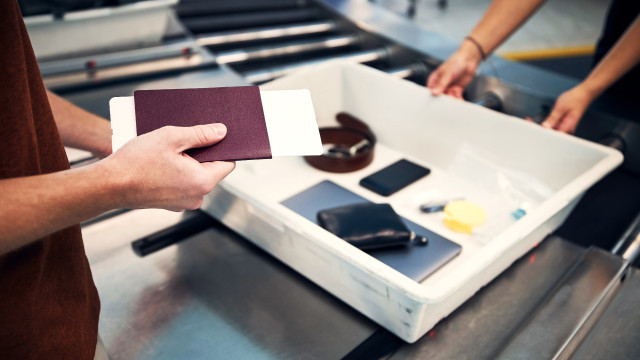
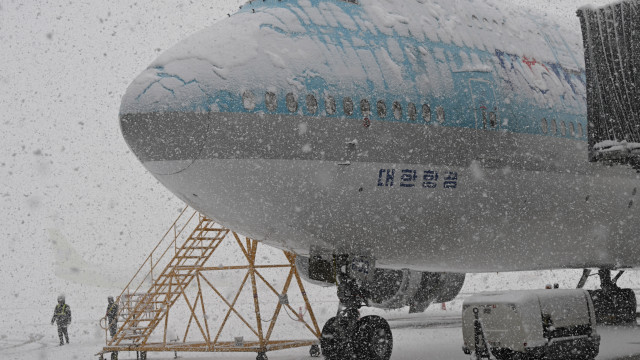

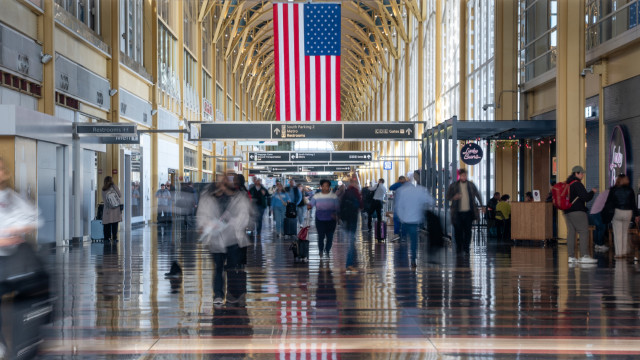

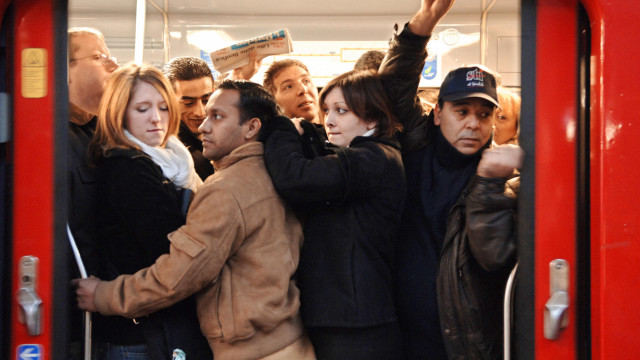




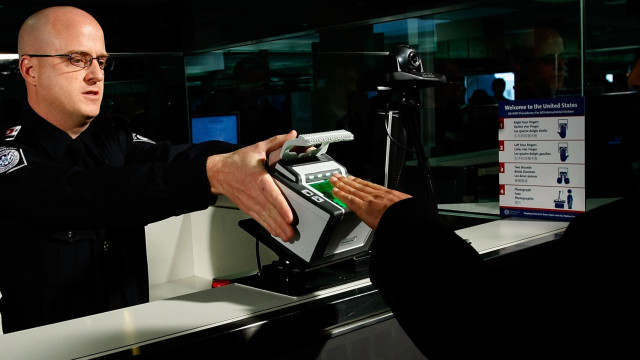

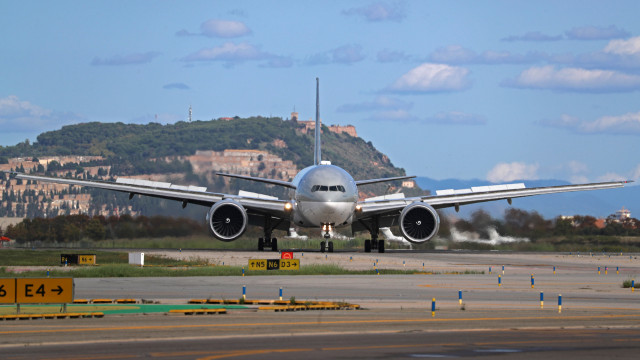






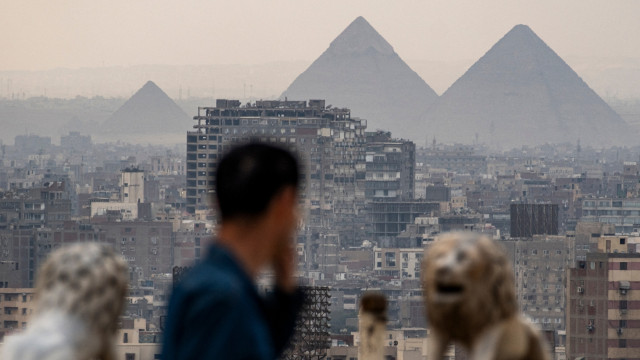


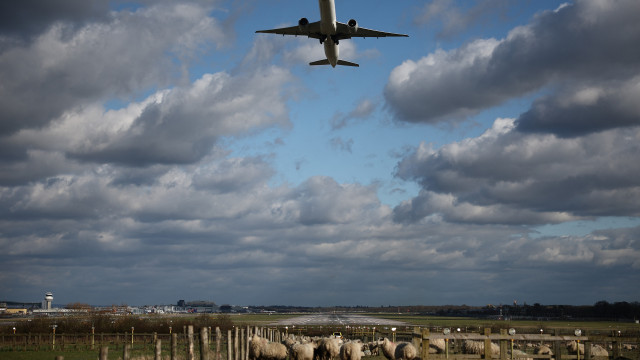



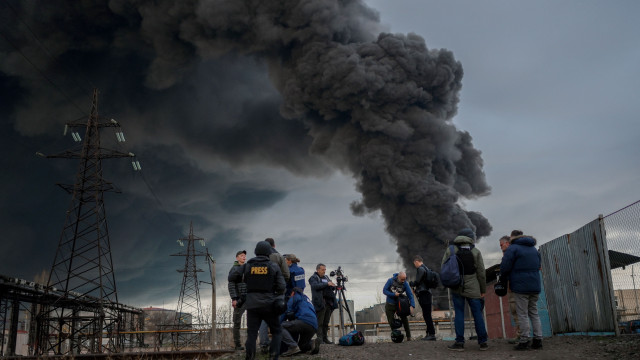

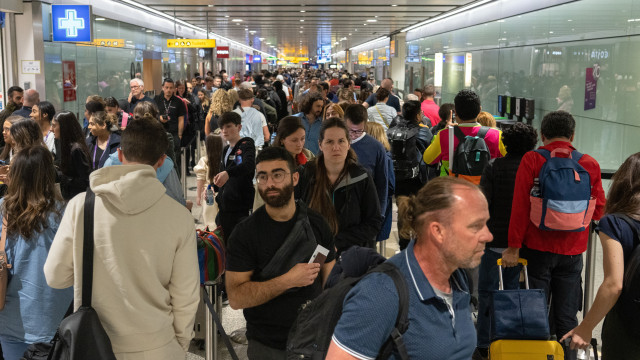





MOST READ
- Last Hour
- Last Day
- Last Week








